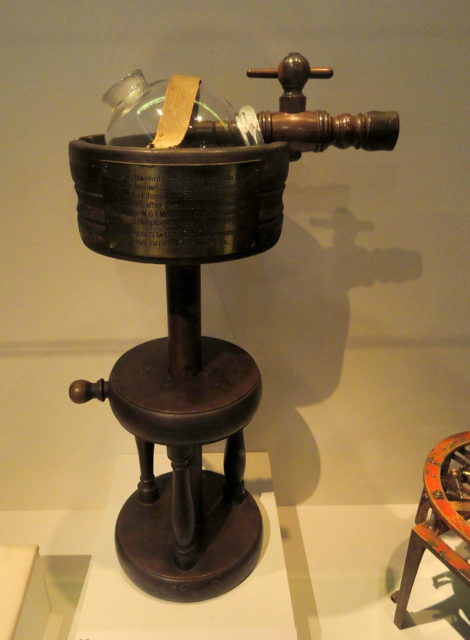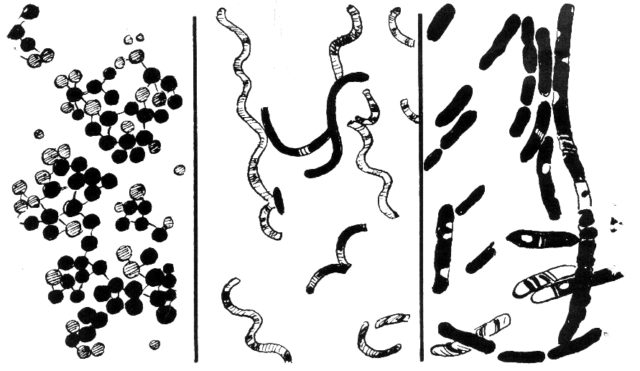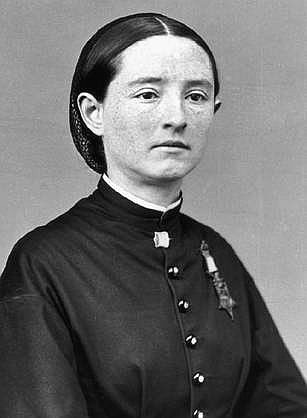The Civil War, fought from April of 1861 to April of 1865, changed the face of America forever. The number of American men, and women lost in the Civil War us greater than any other subsequent war.
Over half a million Americans were killed with even more captured or wounded. After the war, it was common to see men who had lost a limb walking the down the street in almost every town in America.
As the smell of death lingered over the battlefields, there was a place even more dreaded to the soldiers. The field hospitals; where overworked and undereducated doctors worked frantically to save the lives of the men brought to them.
Liquor was used as anesthetics

One of the few anesthetics available to 19th-century doctors was liquor. The problem was that even after their operations, soldiers would often continue to drink heavily to numb the pain of the horrors they witnessed daily. Even the doctors used alcohol to help them cope with the overwhelming numbers of men on which they had to work. At times, the doctors, unable to cope with the horrors of war drank so much that they were operating on patients while they were intoxicated.
Confederate hospital matron Phoebe Yates Pember wrote in her memoirs of a soldier who came in with a crushed ankle. Even after the ankle had been treated and set the man was still unable to cope with the pain. Pember checked the patient only to discover that because the doctor was so inebriated, he had treated the wrong ankle. The patient soon developed an infection and died. Whiskey and brandy flowed throughout the battlefields as well. Officers, soldiers, and medics were frequently drunk. After the first battle of Manassas, the civilians, slaves, and medics who were assigned to bring the wounded to the closest field hospital, which was often no more than a cluster of hastily erected tents, became so intoxicated that they were unable to complete their job, and the wounded soldiers were left on the battlefield to die. The irony of the situation is that if the doctors had known enough to use the alcohol as an antiseptic rather than drinking it many more lives could have been saved.
Lack of medicine

In the 1800s, medicine was not yet being manufactured in large scales in the United States. Often. Drugs were made in Europe and shipped on boats to North America. When President Lincoln ordered a blockade of Confederate ports, medicine became more difficult if not impossible to get. Morphine and quinine were most in demand. Malaria ran rampant in the 19th century and took the lives of thousands of civilians as well as soldiers. Washington D.C., having been built on a swamp at the insistence of Alexander Hamilton, was so infested with malaria carrying mosquitos that Congress could not hold session in the summer months.
Confederate doctors were forced to rely on medicinal plants, captured Union supplies, and smuggling. Women unable to fight saw this as an opportunity to help the cause. Due to the long hooped skirts and multiple petticoats women of the time wore, it became common to smuggle drugs and supplies under their clothes. Women also used toys to help bring the necessary medicines to the South. Doll heads and hollow bodies were filled with medicines and smuggled across the lines under the guise of toys for needy Confederate children.
Lack of Anesthesia

Although alcohol was commonly used as an anesthetic during the war, surgeons also had access to chloroform to dull the senses of those whose limbs were about to be amputated. The screams of the men so often written about were more likely due to the shock of being told they were about to lose an arm or a leg, as opposed to the actual pain of the procedure. The legendary Confederate General Stonewall Jackson described the feeling of having his left arm amputated under the effects of chloroform. He stated that once the drug had begun taking effect. The only thing of which he was aware was the sound of the bone being sawed off. A deeply religious man, Stonewall kept uttering the words, “blessing, blessing, blessing,” so relieved was he that his amputation was free of pain.
Doctors went from patient to patient using the same tools spreading infection and disease as they went.

Deaths during the Civil War were more frequently due to disease than battle wounds. Many of the soldiers, especially in the South, were young men who had never been more than a few miles away from their farms and were suddenly living in close quarters with men from all over the country. Without modern vaccines, diseases such as measles, tuberculosis, and typhoid were quickly spread to those who had no immunity built up in their systems and caused thousands of deaths. The doctors of the time had no idea how to effectively treat such maladies. The addition of unsanitary conditions, lack of nutritious food, and the practice of bathing in and drinking from contaminated streams, spread the ailments even further and compounded the incidents of dysentery which were responsible for the majority of disease-related deaths. Many stories have been told of boys who had entered the army by lying about their age killed by dysentery before even seeing a battle.
A previously stated, doctors went from patient to patient using the same tools spreading infection and disease as they went. Lack of nursing assistance often caused the beleaguered surgeons to hold bloody instruments in their mouths so they would have the ability to access them quickly.
All in all, more than two-thirds of the soldiers gallantly sent off to war were killed by disease, many having never met the enemy in battle.
Dr. Mary Edwards Walker

Dr. Mary Edwards Walker, feminist, abolitionist, and Civil War surgeon began life in Oswego, New York in 1832. In 1855, she earned a medical degree from Syracuse Medical College and set up her own private practice. When the Civil War broke out, she immediately volunteered her services at a field hospital in Washington D.C. She went from D.C. to field hospitals in the South and, although due to her sex she was considered unfit by the Union Army Examining Board, was appointed Assistant Surgeon to the Army of the Cumberland. Dr. Walker was arrested in 1864 by the Confederates as a spy for helping wounded civilians caught up in the horrors of war and sent to a Union prisoner of war camp in Richmond for four months, before being released in a prisoner exchange. She was then appointed Assistant Surgeon with the Ohio 52nd Infantry, a first for any woman, and proceeded to set up a hospital for women who had been captured as Civil War spies, and an orphanage for the many children left homeless due to the war. Due to her courage and heroism during the war, Dr. Walker became the only woman to receive the Congressional Medal of Honor, which she proudly wore to the day of her death in 1919 at the age of eighty-six.
